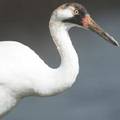 與數千年前相比,目前地球上動物、鳥類和植物的滅絕速度已越來越快。為了儘可能保護生物免於走向滅亡,科學家與「零滅種聯盟」的52個保育團體成員共同合作後,標定出「在全世界只剩一處主要棲息地」的瀕臨絕種生物。他們認為,假設這些地點都能受到直接的保護,棲息在當地的生物將得以安全的存活下去。
與數千年前相比,目前地球上動物、鳥類和植物的滅絕速度已越來越快。為了儘可能保護生物免於走向滅亡,科學家與「零滅種聯盟」的52個保育團體成員共同合作後,標定出「在全世界只剩一處主要棲息地」的瀕臨絕種生物。他們認為,假設這些地點都能受到直接的保護,棲息在當地的生物將得以安全的存活下去。
科學家發現這類的瀕臨絕種生物有794種,包含哺乳動物、鳥類、爬蟲類、兩棲類、松柏科植物,這數目是1500年以來紀錄到已滅絕生物數目的3倍。這794種生物分布在594個棲息地,大多處於熱帶林、島嶼及山區環境中。
美國《國家科學院研究公報》(Prceedings of the National Academy of Sciences)在12日發行的期刊中,發表了這794種生物的分布地點,並稱之為「瀕臨滅絕的中心」(centers of imminent extinction)。
零滅種聯盟表示,「棲息地的保護是挽救這些生物的主要關鍵」,並指出,在此研究中所列出的生物,有93%是因棲息地破壞而受到威脅。若生物的最後棲息地消失,之後將走向滅絕,除非人類願意永遠收留這些生物以人工飼養牠們。該聯盟說,保護棲息地可提供乾淨的水源、捕捉碳素來幫助減緩全球暖化現象。整體看來,也對地球有益。
Animals, birds and plants are going extinct more quickly now than they have for thousands of years. To help save as many species as possible, scientists working with the 52 member organizations of the Alliance for Zero Extinction have identified endangered species whose global populations are reduced to just one primary site. If that site can be protected with "immediate and direct" action, the Alliance believes, the species living there can be saved.
The scientists found 794 such species of mammals, birds, reptiles, amphibians, and conifers, three times the number recorded as having gone extinct since 1500. These species occur in 595 sites, concentrated in tropical forests, on islands, and in mountainous areas.
The sites where these 794 species cling to existence are called "centers of imminent extinction" in the study published Monday in the "Proceedings of the National Academy of Sciences."
Habitat protection is the key to saving these species, says the Alliance, pointing out that 93 percent of the imperiled species listed in the study are threatened primarily by habitat destruction. If a species' last habitat is lost, then it will become extinct, or humans are committed to maintaining it only in captivity for all time.
Habitat protection also benefits the planet as a whole by helping to provide clean water, and capturing carbon to help slow global warming, the Alliance says.






